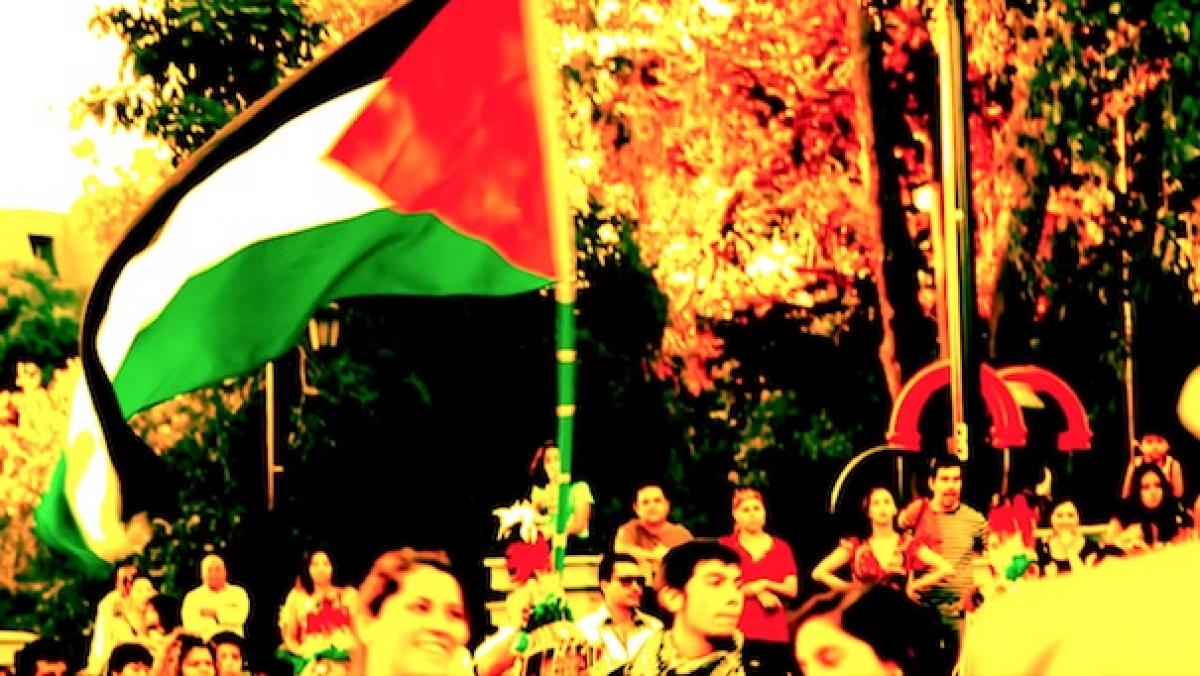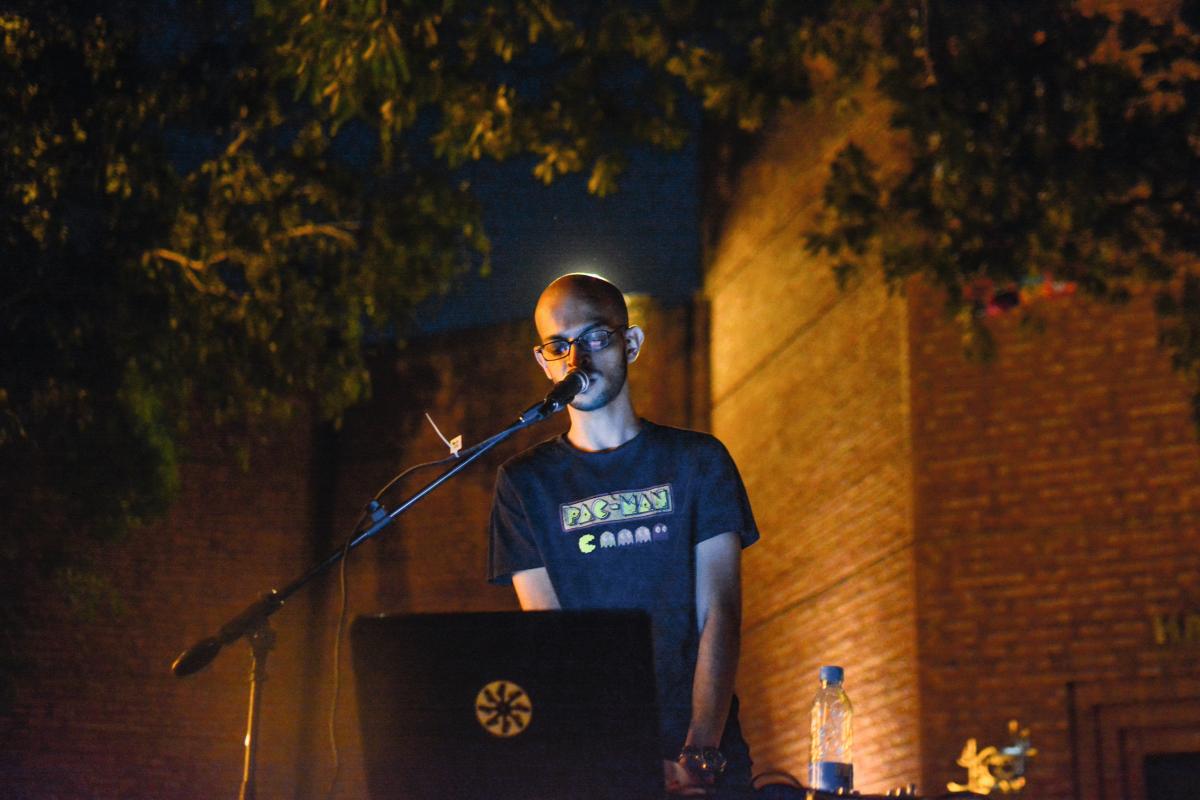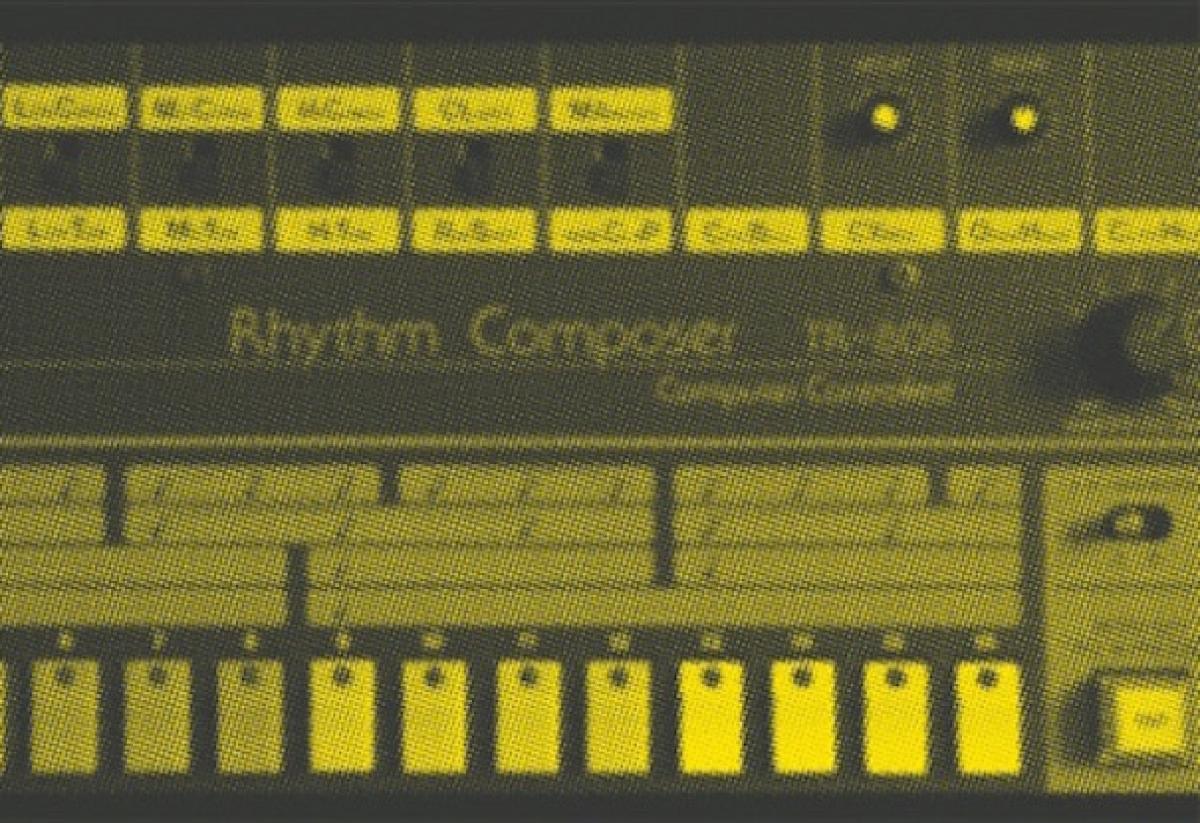Im neu erschienen Buch Kultsounds – Die prägendsten Klänge der Popmusik 1960-2014 (Transcript, Bielefeld 2017) geht der Pianist, Komponist und Wissenschaftler Immanuel Brockhaus auf die Suche nach prägenden Einzelsounds der Popmusikgeschichte. Sounds oder Effekte wie der Hand Clap, der Synthesizer-Bass, Auto-Tune oder der Klang eines DX 7 E-Pianos sind genuine Popsounds und stehen in hohem Masse für die Identifizierung von Stilen. Brockhaus hat in diesem Buch – seine Dissertation an der Universität Bern – über 2000 Songs der Billboard Charts der vergangenen 60 Jahre analysiert. Er liefert damit Einblicke in Technologie, Anwendungspraxis und Ästhetik von Kultsounds sowie den damit verbundenen Netzwerken. Einer dieser Kultsounds ist nach Brockhaus der Tape Slow-Down-Effekt, der sich dieser Tage immer grösserer Beliebtheit erfreut. Ein Auszug aus dem Buch.
«Let’s do the Time Warp Again»
(Song/Tanz aus The Rocky Horror Show, 1973)
Mit dem Warping in Ableton Live hat das Faszinosum der Zeitkrümmung oder des Zeitsprungs seine Realisierung erfahren: Audiodateien können bei gleichbleibender Tonhöhe im Tempo verändert werden. Der Bandstopp-Effekt scheint am Ursprung dieser Technik zu sein.
Technische Mängel
Wenn ältere Bandmaschinen während der Abspielphase gestoppt oder abrupt in eine andere Bandgeschwindigkeit umgeschaltet werden, reagieren die Motoren und Mechanismen in der Regel nicht unmittelbar, sondern mit einer gewissen Verzögerung. Da sich bei diesem verzögerten Abbremsen die Bandgeschwindigkeit verringert, verändert sich dabei auch automatisch die Tonhöhe des sich auf dem Band befindlichen Materials. Dieser Effekt kann auch bei Kompaktcassetten auftreten. Ähnliche Effekte entstehen bei gleichzeitigem Playback und Spulen eines Tapes. Auch bei Plattenspielern tritt der Pitch-Effekt auf, wenn auf nicht konventionelle Weise die Umdrehungsgeschwindigkeit verändert oder der Drehteller manuell abgebremst wird.
Bei der Bandmaschine, von welcher der Bandstopp Effekt primär ausgeht, handelt es sich im Prinzip um eine technische Unzulänglichkeit, die in der digitalen Ära nicht mehr auftreten kann, da die Systeme keine spürbare Trägheit mehr aufweisen und direkt reagieren. Tonbandmaschinen stoppen und starten aufgrund ihrer technischen Voraussetzungen (Motor und Übertragungsrollen) nicht unmittelbar.
Bei Tape Editing, dem diffizilen, langwierigen und risikobehafteten Vorgang des Schneidens und Kopierens von Ton- und Geräuschmaterial, wird das Band von Hand am Tonkopf entlang geführt, um Beginn und Ende des zu editierenden Materials zu lokalisieren. Dieser auditive, haptische Vorgang wird scrubbing genannt. Das scrubbing hat sich in den DAW’s als Option gehalten, um sehr genaue Schnitte durchzuführen, obwohl eine optische Kontrolle durch die Sichtbarkeit der Wellenformen bereits vorhanden ist. Scrubbing als analoges Relikt führt im digitalen Umfeld eine handwerkliche Daseinsberechtigung da es die visuelle Kontrolle um die auditive und haptische Komponente erweitert.
Bandmaschinen aus dem Consumer (Heim-) Bereich (wie etwa die Akai 400 D) ebenso wie High End Studiogeräte von Studer (A 820) unterlagen gewissen technischen Mängeln. Ein erstes Manko ist das Bandrauschen, ein weiteres sind die Gleichlaufstörungen (wow and flutter), die auch bei Plattenspielern und Kassettenrekordern auftreten. Diese können zwar minimiert werden, sind aber dennoch Teil eines analogen Systems, das auf mechanischen Komponenten wie Motoren und Antriebsriemen beruht. Dies bedeutet, dass sich der Anwender damit arrangieren muss.
Die Studer A 820 Studio Master Maschine verfügte bereits über umfangreiche Pitch Control Features, die es ermöglichten, die Geschwindigkeit während der Wiedergabe individuell anzupassen, was zu ähnlichen Effekten führt. Aber selbst die hochtechnisierte Studer Maschine erzeugt beim Abstoppen den hier angesprochenen Effekt der bei grober manueller Kontrolle (indem man die Spulen per Hand abbremst) eine Art Scratching-Effekt erzeugt. DJs wie Ruthless Ramsey oder das Open Reel Ensemble arbeiten auf dieser Ebene mit Cassettenrekordern und Bandmaschinen. Im Prinzip ist der Tape Stop also primär ein unerwünschter Effekt der jedoch durch seine ästhetische Wirkung zum Artefakt invertiert wurde.
Digitaler Tape Stop
Die digitale Simulation des Effektes stand bereits ab 2008 in Pro Tools als freies Plug-in namens vari-fi und ab 2009 in Logic Pro 9 als Fader-Zusatzfunktion zur Verfügung. Dabei können sowohl Summen- als auch Gruppen- und Einzelsignale bearbeitet werden. Im Prinzip verstehen sich beide Applikationen als eine Erweiterung des Pitch-Effektes auf der zusätzlichen Zeitebene. Dementsprechend liessen sich auch Tape Slow-Down-Effekte mit einem über das Pitch-Bend Rad eines MIDI-Keyboards gesteuertes Audio Signal realisieren.
Aktuelle Plug-ins wie etwa Tape Stop von der Firma Vengeance bieten zusätzliche Erweiterungen auf der Filterebene und ein umfangreiches Handling an. Auch das Plug-in Effectrix von Sugar Bytes bietet den Effekt an, kategorisiert diesen jedoch als Vinyl-Effect: «...für uns ist der Tape Stop einfach ein naheliegendes Tool, um schnell und effektiv am Rechner Vinyleffekte umzusetzen.» Andere Anbieter von DAW’s implementieren den Bandstopp-Effekt ebenfalls als Standard, seit sich in den letzten vier Jahren eine Popularität eingestellt hat. In diesem Entwicklungsprozess ist (wie auch in vergleichbaren, beispielsweise Auto-Tune) zu beobachten, dass ein Effekt erst von wenigen Anwendern per Zufall oder Experiment entdeckt wird und dann in relativ kurzer Zeit in allen vergleichbaren Produkten zur Verfügung steht. Dabei werden die Basisfunktionen von Drittanbietern in speziellen Plug-ins erweitert.
Historische Beispiele
Historische Beispiele mit Tape Speed-Up- und Tape Slow-Down-Effekten sowie Gleichlaufschwankungen lassen sich an Songs der 1970er und 80er Jahre wie Nazz «Hang On Paul» (1969), Black Sabbath «War Pigs» / «Lukes Wall» (1970), Rocky Horror Picture Show «Time Warp» (1973), Pink Floyd «The Great Gig In The Sky», (1973, Gleichlaufschwankung), Sweet «Sweet F.A.» (1974), Joy Division «A Means To An End» (1980), Talking Heads «Wild, Wild Life» (1986) oder Tom Petty and the Heartbreakers «Jammin Me» (1987), festmachen (Hörbeispiele hier). Diese weisen (ausser letzterem) allesamt ähnliche Charakteristika auf: am Ende des Songs wird das Band verlangsamt oder beschleunigt und erzeugt einen surrealen Effekt.
Tape Stop in den Charts – kreativer Einsatz?
Anhand von 40 untersuchten Beispielen aus den Billboard Charts lassen sich noch weitere Charakteristika feststellen. Zunächst wird der Tape Stop als Slow-Down und Speed-Up-Effekt in verschiedenen Geschwindigkeiten, bis hin zu sehr kurzen rhythmischen Einwürfen eingesetzt. Dies geschieht dann auch sowohl als Summen- als auch Gruppen- oder Einzelspureffekt, meist jedoch in der Summe aller Tracks. Die dramaturgische Erscheinungsform des Effektes reicht von dezent bis zu sehr plakativ, und wird oft an Wendepunkte eines Songs, aber auch ganz zu Beginn und am Ende eingesetzt.
Der digitale Effekt trat erstmals 2001 auf, erreichte aber erst in den Jahren 2010 bis 2014 grosse Beliebtheit. Fast ausnahmslos findet sich der Sound in Hip Hop, R&B und EDM-Produktionen, also in einem Bereich, in dem ohnehin schon stark mit elektronischen Effekten gearbeitet wird. Hier eröffnen sich durch die digitalen Möglichkeiten neue Varianten des Effektes.
Ein Grossteil der untersuchten Produktionen stammt aus den USA, einige davon wurden im Conway Studio in Los Angeles realisiert, ein Studiokomplex der mit vielen aktuellen Chart-Künstlern zusammenarbeitet. An sechs Beispielen sollen verschiedene Einsatzmöglichkeiten des Tape Slow Down Effektes erläutert werden:
Kevin Rudolf feat. Lil Wayne: «Let It Rock» (2009) direkt zu Beginn des Songs, dann bei 2:22 plakativ und am Ende mit Speed-Up
Ellie Goulding: «Lights» (2012) als Breakdown-Effekt bei 2:30
Ke$ha: «Tik Tok» (2010) zu Beginn des Songs (0:39) sehr plakativ, bei 2:44 mit komplexen Speed-Up und Slow-Down-Effekten
Flo Rida: «Good Feeling» (2012) an vielen kleinen Stellen wird der Effekt als rhythmische Komponente eingesetzt, ab 3:59 spielerisch
Nicki Minaj: «Starships» (2012) hier finden vordergründige Speed-Up und Slow-Down-Effekte statt, die sich laufend wiederholen
David Guetta: «Turn Me On» (2012) bei 2:45 wird ein Slow-Down-Effekt als Einleitung zu einem Rap Teil verwendet
Mehrheitlich handelt es sich also im Kontext von kommerziell orientierten Popsongs beim Tape Stop Effekt um ein Sound Gadget, welches spielerisch-plakativ eingesetzt wird, die musikalische Substanz jedoch nicht bereichert.
Vom Glitch zum Artefakt
Der Tape-Stop-Effekt kann auch unter die Kategorisierung der Glitch-Sounds oder Glitch-Effekte gezählt werden, da es sich gewissermassen um eine produktbedingte Fehlerhaftigkeit handelt. Die bei Bandmaschinen wie auch bei Plattenspielern oder Kassettengeräten angesprochenen technischen «Unzulänglichkeiten», die zum Wesen des Analogen gehören, werden als Plug-ins (so zum Beispiel Virtual Tape Machine der Firma Slate Digital, das Gleichlaufschwankungen simuliert) in DAW’s «implantiert», um der DAW zu suggerieren, sie solle sich so verhalten wie ihre medialen Vorfahren.
Abgesehen von einigen als gimmick eingesetzten Stellen ist der Tape-Stop-Effekt ein kennzeichnendes Exempel für den Transfer des pseudo-Analogen in das Digitale. Der Bandstopp-Effekt in der heutigen Form wird nicht nur deswegen häufig angewandt, weil sich die Handhabung einfach gestaltet. Auch die kreativen Möglichkeiten durch neue Plug-ins führen in populärer Musik zur Entwicklung neuer ästhetischer Strömungen, die sich schon längst nicht mehr nach den gängigen Beurteilungsmustern richten. Ob, wann und wie der Bandstopp-Effekt abebbt oder wieder aufblüht, bleibt ungewiss.
Videos
Beispiel des Bandstopp-Effekts in einer Studiosituation. Ebenfalls zu sehen ist der Scrubbing-Effekt, der einem Scratch-Sound gleicht.
Beispiel einer Bandstopp-Software mit verschiedenen Editiermodi.
DJ Ruthless Ramsey 1991
Open Reel Ensemble 2015



